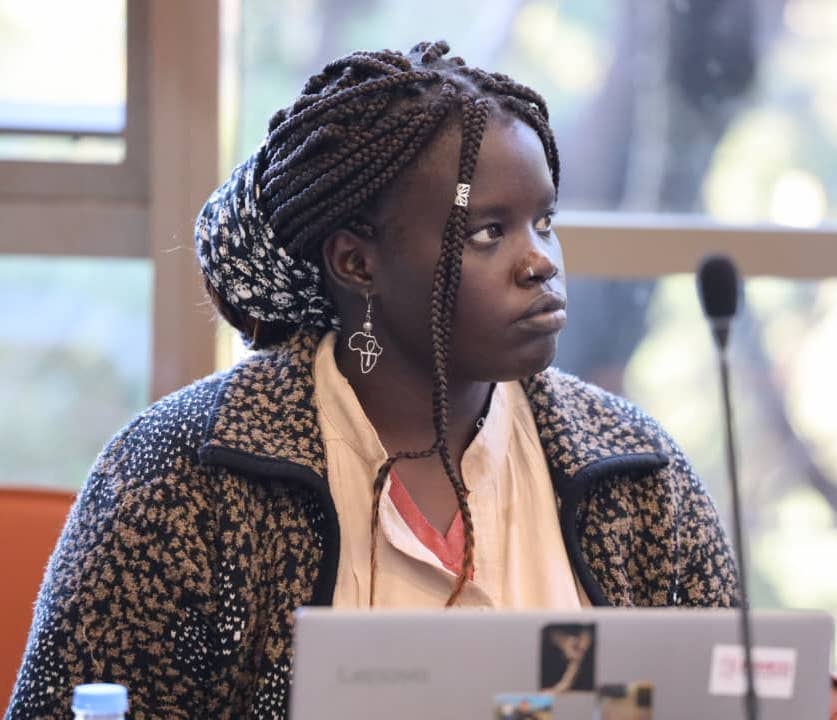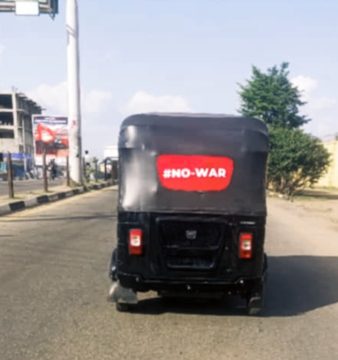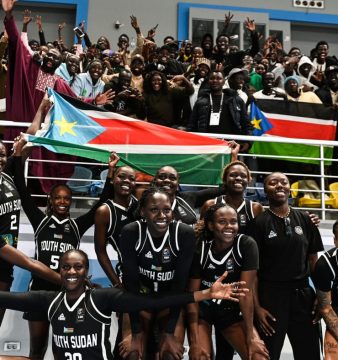[The Picture] Flags of Hope and Resilience: Celebrating Eid and Freedom in Khartoum
Smiles of joy and victory, as they wave flags of Sudan, marking the first time civilians in the South Belt of Khartoum, the capital city, have celebrated Eid Al Fitr freely – without the fear of war and captivity.
This is a profound moment for the people of the South Belt, who have endured extreme hardship and instability since fighting between the Sudanese Armed Forces (SAF) and the Rapid Support Forces (RSF) began on 15 April 2023. Earlier this year, the SAF began liberating Khartoum State, ultimately recapturing areas such as Khartoum North (Bahri), Sharq Al Nile (East Nile), Omdurman, and the southern parts of Khartoum. The RSF, upon learning of the army’s advance in Al Gezira State in January 2025, began withdrawing from the city, marking a pivotal shift in the dynamics of the war.
Many people living in marginalised areas like the South Belt have been unable to leave their homes or relocate to safer places due to several reasons, including financial limitations and the lack of alternative or accessible havens. Many residents of the South Belt migrated from peripheral regions in Sudan to Khartoum over 30 years ago in search of employment, better living conditions, and opportunities for a better life. The South Belt, historically one of the most vulnerable and marginalised areas in Khartoum, was one of the first to be captured by the RSF and set up their military base in Almadani Alradhyia. When war first began, it was in South Belt that the first clashes occurred.
Before the SAF reclaimed the South Belt, people were found suffering from a severe shortage of food, water, electricity and other basic necessities. Residents including children, some babies, have died from malnutrition. The main hospital, Al Bashair or Bashair, ceased functioning, leaving residents with no access to basic medical care. The situation worsened as several volunteers were arrested for attempting to help, including Hatim Aldaw, a volunteer from South Belt Emergency Room. He was freed in February 2025 by the SAF along with other prisoners who had been captured by the RSF in Jebel Awlia. These difficulties, alongside the absence of essential services, made life in the South Belt a daily struggle for survival.
The flags, waving proudly in the wind, symbolise the unwavering belief of the people in their nation despite all they have endured. These flags are not just pieces of cloth; they represent a deep, emotional connection to Sudan, and its history of struggle and resilience. Sudanese people have long used flags to express their collective identity and aspirations. They waved them during the country’s independence, during the revolutions that aimed to overthrow oppressive regimes, and now, they wave them in moments of freedom, victory and triumph. These flags are symbols of resistance and of a people who refuse to surrender to despair, no matter how overwhelming their circumstances may seem.
This powerful combination of the joy of Eid Al Fitr and the triumph of victory and freedom gained by the SAF creates an atmosphere of unity and hope. It reflects how, even in the darkest times, people find ways to celebrate life, express their faith, and hold on to their enduring hope for peace and a brighter future. This picture is a powerful representation of resilience. It speaks not only to the SAF’s military victory but to the triumph of humanity. The people of the South Belt, despite the immense suffering they have endured for nearly two years, have now found a reason to smile and to feel safe again. The flags in the picture stand as a testament to the strength and determination of the Sudanese people. They are a reminder that, no matter the challenges, the people of Sudan continue to stand united in their pursuit of freedom, peace, justice, and a better future.
500WM Columnist Dominica Amet Joseph Marco is a 26-year-old South Sudanese writer, freelance journalist and feminist/social activist who graduated from the faculty of law from the University of Bahri in 2018. She is one of many who had to flee war in Sudan to finally come and live in her homeland South Sudan. She has written and published articles, stories and poems since 2017. She has worked with and published articles in Aka’bar Alwatan Newspaper in Sudan, Almugif Newspaper in South Sudan, and several other Arabic websites.





